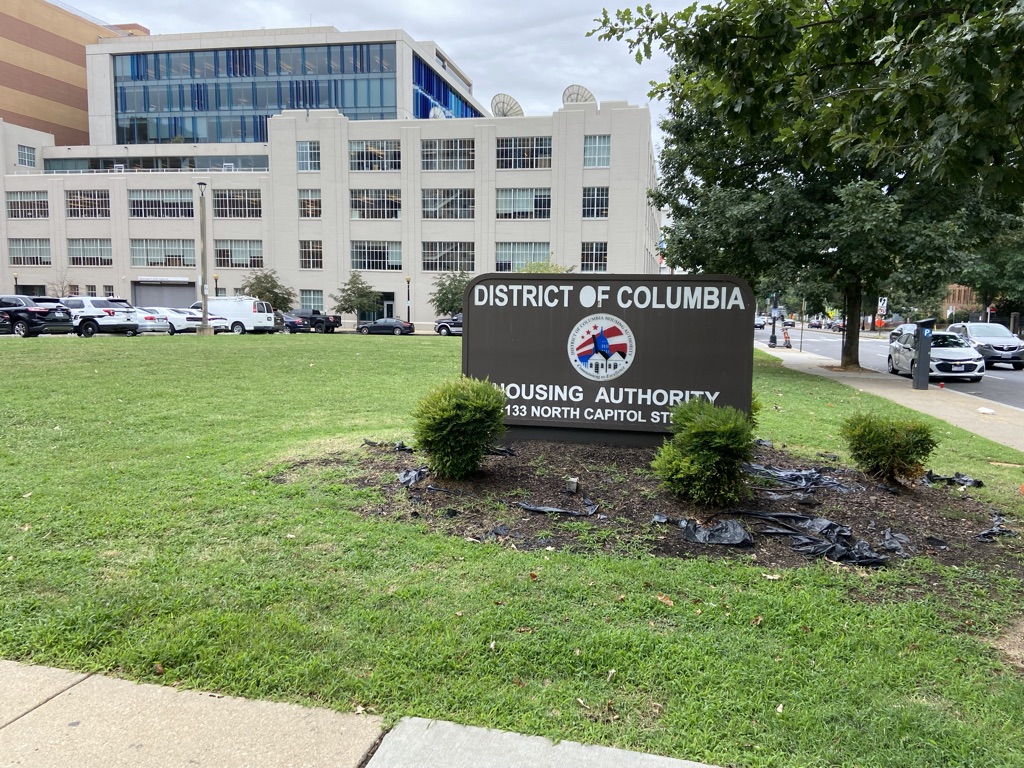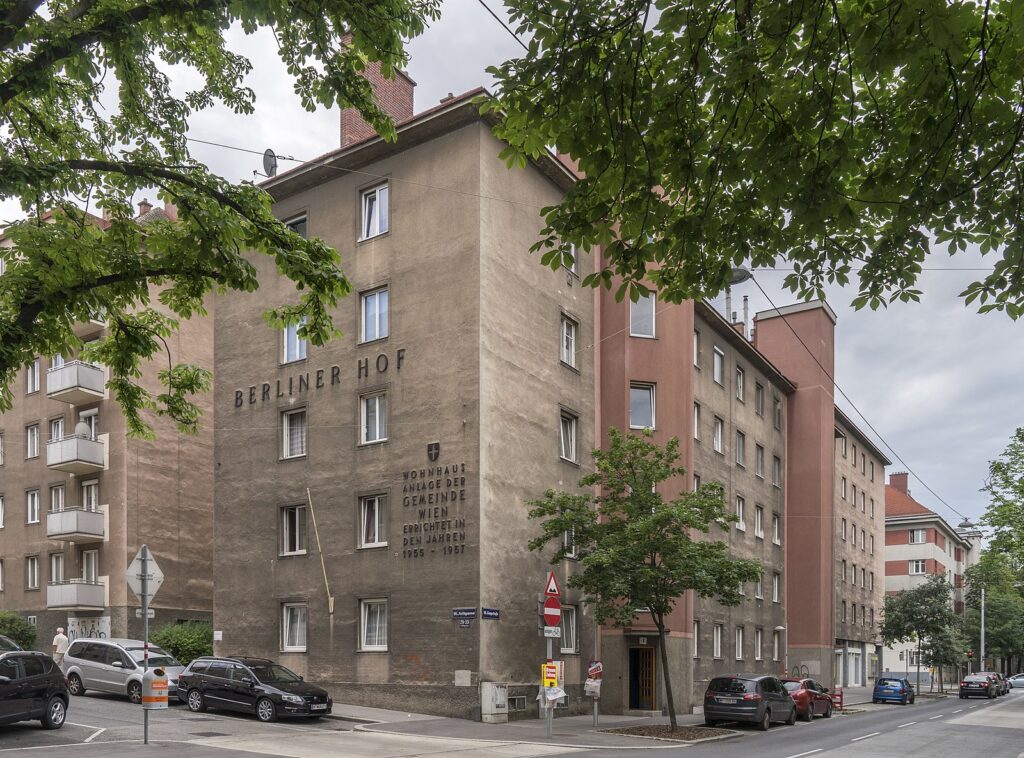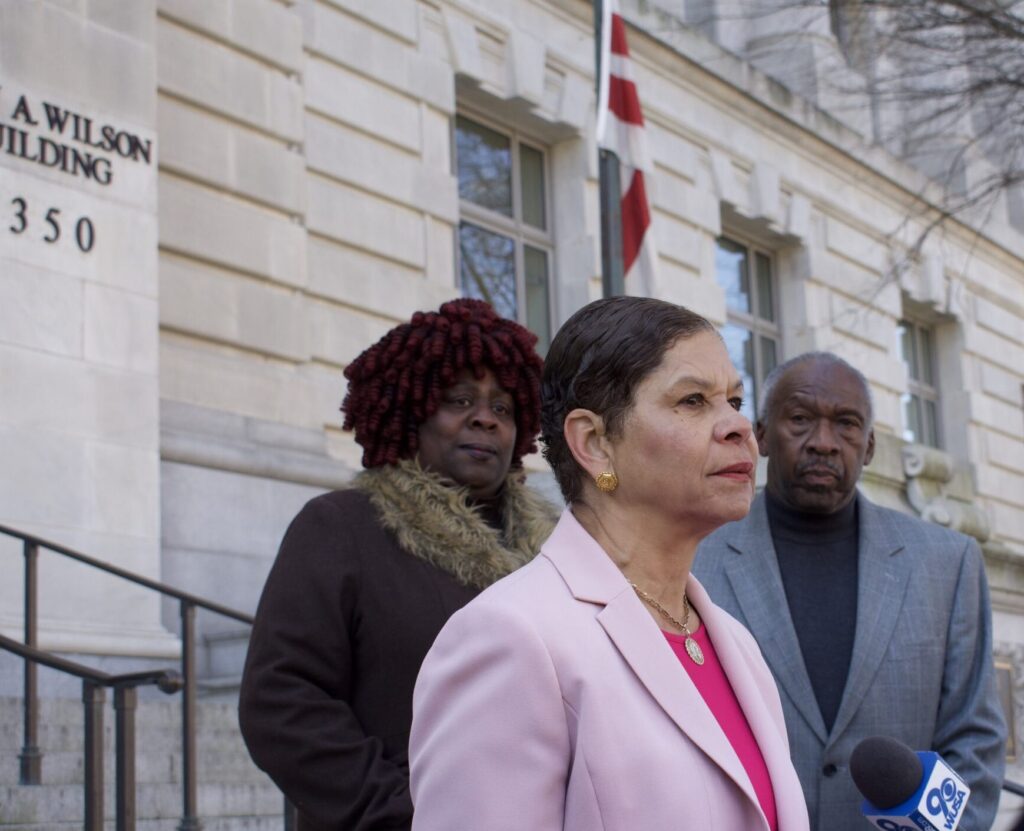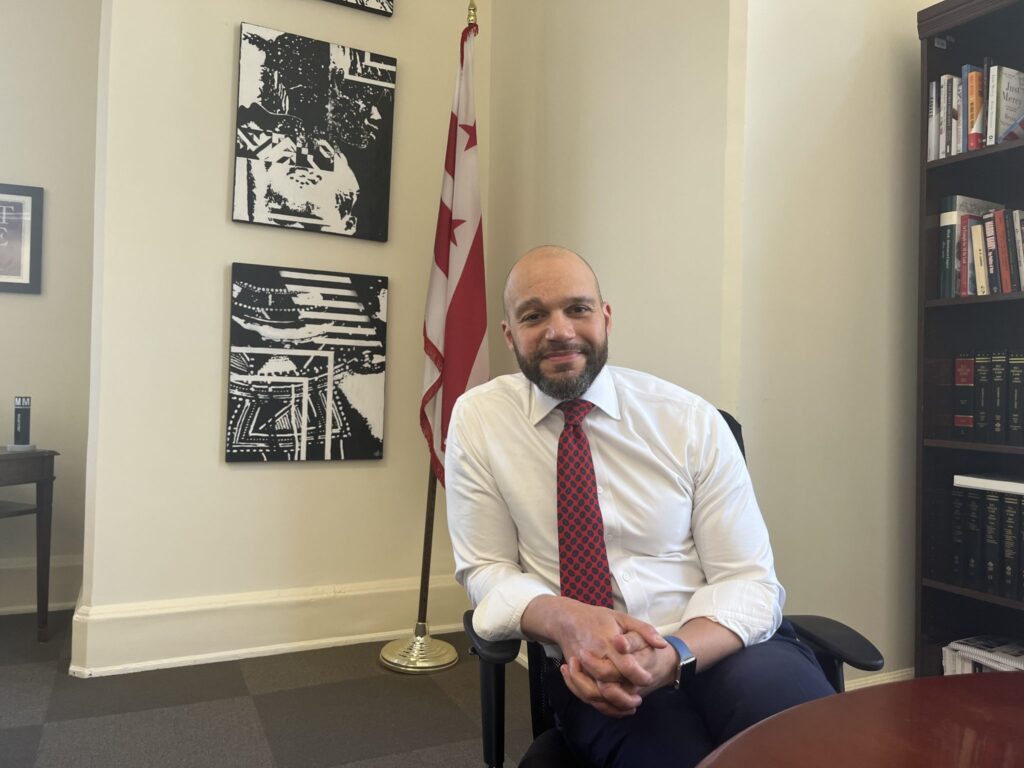Despite promises of progress at the D.C. Housing Authority (DCHA), new Executive Director Keith Pettigrew testified at a D.C. Council oversight hearing on Feb. 22 that the agency still needs a recovery plan.
Pettigrew took over in November, about a year after the U.S. Department of Housing and Urban Development (HUD) issued a report citing dozens of problems within DCHA. Issues HUD raised in the report included “failure to provide decent, safe, and sanitary housing opportunities” and poor oversight of the agency. Despite assurances from former DCHA Executive Director Brenda Donald that she’d turn things around in 2023, public housing residents and activists who testified during the Housing Committee’s hearing said many of the issues raised in the HUD report have persisted.
At the hearing, DCHA leadership, councilmembers, advocates and residents discussed plans to address concerns, such as crime in and near units, maintenance delays and long waits for DCHA support (the average hold time to speak to a DCHA agent on the phone is over four hours, according to Pettigrew). Two of the agency’s largest challenges include poor conditions in public housing units and inaccuracy in determining reasonable rent prices for voucher recipients, according to those who testified.
DCHA’s recovery plan, Pettigrew said, will include hiring more staff and outside contractors, implementing customer service training and bringing employees back into the office (many agency employees currently work remotely). Councilmembers and DCHA leadership also discussed recent progress under Pettigrew’s leadership, including occupancy rates that have steadily increased in recent months — in part through invite-only “eligibility events” for those on the public housing waiting list, which is still closed despite promises it would reopen last summer.
In April 2023, DCHA approved several resolutions to address the issues HUD found with the agency in 2022. One resolution called for the agency to reopen the public housing waiting list in summer 2023. The waiting list — closed since 2013 — had stretched to 22,000 names when leasing began in 2022.
In 2023, DCHA hosted invitation-only eligibility events at Martin Luther King Jr. Memorial Library for individuals already on the waiting list, intended to help potential tenants get access to housing and determine their eligibility. For the May 2023 event, invitations went to 22,000 people, many of whom had spent decades on DCHA’s public housing waiting list.
According to DCHA, everyone who is on the waiting list was invited to at least one event to complete the eligibility determination process. These sessions, along with additional meetings between the housing authority and invitees who could not attend the library events, helped 418 families move into housing so far, according to a DCHA spokesperson.
According to an April 2023 DCHA press release, these leasing events and new policies were intended to “effectively allow DCHA to reopen the public housing waiting list in summer 2023,” though the agency outlined plans to manage the list differently than in the past.
That reopening, however, has not occurred. A DCHA spokesperson wrote to Street Sense that according to current plans, the public housing waiting list will reopen sometime this year.
More events are scheduled for 2024, with two having taken place on Feb. 10 and Feb. 24.
Part of the reason for the long waitlist is the rate of vacant and uninhabitable DCHA units, which was the highest in the United States in 2022. Oversight hearing participants also discussed the DCHA’s progress, including an acceleration in preparing vacant public housing units for new residents. While the monthly average of “turned” units is 50 units per month, 122 vacant units were made ready for new residents in January. As a result, public housing occupancy rates have been increasing, from 73.89% in December to 75.17% in February.
DCHA is aiming to achieve 85% occupancy in public housing by the end of 2024, Pettigrew said.
The HUD report also criticized the condition of DCHA units, leading to a “summer maintenance blitz” last year, during which Donald said every unit would be inspected and repaired. However, residents testified last month that conditions were still poor in some cases.
Needed repairs and unaddressed maintenance requests have been sources of stress for public housing residents for years. Many residents said they have been forced to live in units with rodents and mold.
“There are dead mice everywhere, and you can smell it,” Yelenda Thornton, a public housing resident, said during the oversight hearing. “These are people, and these are people’s homes.”
For residents, the delays can exacerbate mistrust and anxiety.
“When the administration says, ‘Hey, we’re going to inspect them all and then we’re going to fix them’ and that does not happen, it exacerbates this trust gap that exists between public housing residents and the agency,” Daniel Del Pielago, the housing director of advocacy group Empower DC, said in an interview with Street Sense.
During the oversight hearing, Pettigrew said he and other DCHA leaders have conducted multiple “walk-throughs” since joining DCHA, during which they and resident leaders identify areas in which units are vacant and repairs are needed. Four additional tours are scheduled in the “near future,” according to the DCHA spokesperson.
Another recurring complaint relates to the “right of return” to public housing units undergoing redevelopment. One example is Barry Farm, a former public housing complex that has been slated for redevelopment for several years. Since 2016, when residents were forced to relocate, former tenants of Barry Farm have been awaiting an opportunity to return. (Construction began in 2022; the entire project is expected to be complete by 2030.)
“We need clear direction on how the city is — how the housing authority is — going to move with right of return,” Del Pielago said.
He and most of the other oversight hearing participants, including DCHA leadership, said further action is needed to improve access to — and the quality of — public housing in D.C.
“We need to hold this city — this administration — accountable for ensuring that those units get filled,” Del Pielago said. “That’s a priority, along with actually fixing the units people live in.”








